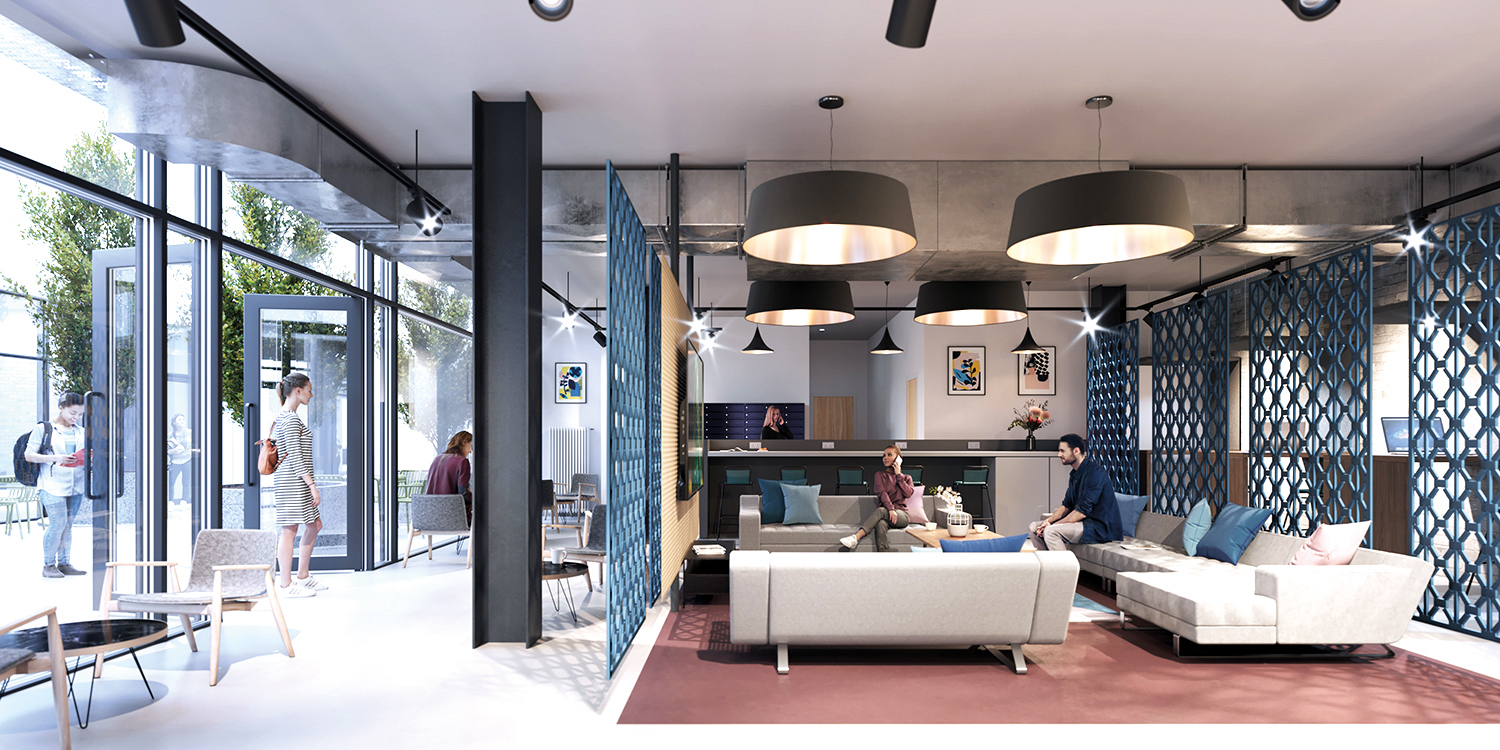As many university students return to their accommodation again, how can we learn lessons from their recent isolation in lockdown about improving their environment? James Potter of WGP Architects says the key is to stop patronising students

One glaring example of misjudging the student market was the fencing-in of University of Manchester students at Fallowfield Hall of Residence during the pandemic last year. Not only was this a PR disaster but it shows that we don’t seem to fully get who students are and what their sensitives might be, which is odd given how many of us were once students ourselves.
At WGP, we have been gaining ever more experience in the world of commercial student accommodation where we exist by a rule - don’t patronise students. Patronising takes many forms; the way students are taught as well as the places they’re offered to live and work. It all sends a tacit message about how we value the role of students and universities in society. Mindful of this it seems logical to treat the student market as being every bit as discerning and refined as any other.
For some time now, the cutting edge of new student accommodation has been taking a visual cue from the more contemporary long-stay apart-hotel. The big sell remains the common parts: the gym, the workspace, the lounges etc with arguably less emphasis, or less invention, saved for the rooms themselves. Given the duration that many students have endured staring at the same four walls over the past 12 months it follows that, central to the student experience is the bedroom itself and perhaps this should be one of the key focuses for a rethink in the future.
Returning to the ever-closing gap between the worlds of student accommodation and hotels, the gap appears to have closed entirely with the arrival of the Student Hotel Group. This operator is yet to open facilities in the UK but they have multiple sites across mainland Europe where the message is patently clear, as implied by their name.
This now poses some interesting questions. Is it going too far? Yes, student accommodation can share similarities with the apart-hotel sector, but a hotel is a place for more transient stays where the sense of anonymity – of being a tourist looking into another world – is perhaps at odds with the student way of life where one is meant to be part of a more permanent community, a town and gown contributor.
There is something to be applauded in treating students as professionals-in-waiting, giving them live/work spaces and intermingling their existence with the lives of those earning a wage and in need of similar space to live and exist. So there are a great many reasons to see this as the next big success story in student accommodation and one likely to be copied.
But, having been a champion of treating students as having environmental sensitivities the same as working, independent adults, are we now at risk of taking them too far away from, dare I say it, the concept of “sacrifice in the name of learning” that seemed more prevalent when we studied some 30years ago?
I was suspicious of anyone who had plush digs at university or who was patently materialistic; how could you trust these people? But perhaps that adversity has evolved since we were studying at a time pre-dating the introduction of tuition fees. Certainly the cost of being a student is now so extreme, it’s small wonder that students look for comfort in other ways as the existential pressures on them are now so wide ranging. But it’s surely time to think closely as to whether the ever-increasing merger of sectors is providing students with the tailored environment they need.